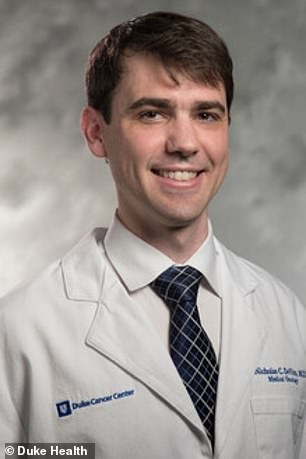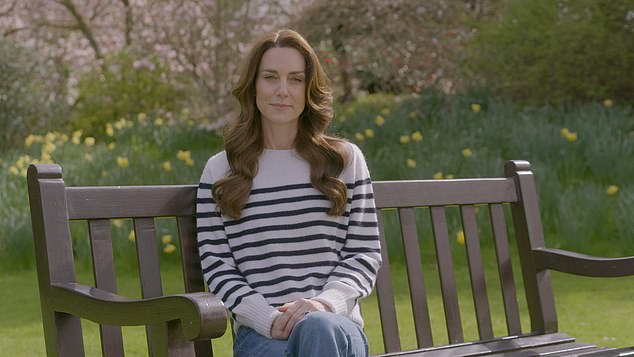It’s a disturbing pattern that’s baffling doctors around the world: More adults under age 50 are getting cancer than ever before.
Over the past 30 years, diagnoses among young people have soared by 80 percent worldwide and 25 percent in the U.K., according to a 2023 international analysis.
Although the reason is still unclear, cancer experts in the UK have made their suspicions known.
Professor Charles Swanton, an oncologist and clinical director at Cancer Research UK, has highlighted emerging links between the “disturbing” pattern of cancer and Britons’ increasing consumption of junk food or ultra-processed foods.
Speaking at the American Society of Clinical Oncology last year, he said studies have shown some early-onset bowel cancers may be “kicked in” by bacteria in the gut that are prevalent in those who eat diets low in fibre and high in sugar.
“What we’re seeing in some studies is that some tumors from patients with early-onset colorectal cancer harbor mutations that could be initiated by these microbial species,” he said.
These mutations are thought to reduce the body’s ability to fight precancerous cells.
Dr. Cathy Eng, a bowel cancer specialist at Vanderbilt University Medical Center in Nashville, also noted that many young cancer patients also suffer from lifestyle conditions linked to poor diets, such as High blood pressure, high cholesterol and diabetes.
Matthew Lambert, nutritionist and health information and promotion manager at the World Cancer Research Fund (WCRF), told Mail Online: ” We recommend people eat less processed foods high in saturated fat, sugar and salt, such as cakes, biscuits, pastries, crisps, sugary drinks and fast food like pizza and burgers.
‘These types of foods have no fiber and contain virtually no essential nutrients, so they should only be consumed occasionally and in small quantities.’
He adds that it is not yet clear whether the risk lies in junk food itself or in the fact that it is easy to eat a lot of it, which increases the chances of gaining weight.
However, it is well known that obesity is a direct cause of several different types of cancer: 13 according to Lambert.
Kate Middleton was diagnosed with cancer at the age of 42 after abdominal surgery
As well as junk food, Professor Swanton warned Britons against regularly consuming another British staple.
The risk of bowel cancer is “much higher” if you eat red or processed meats, such as ham or bacon, every day, she told the National Cancer Research Institute (NCRI) Cancer Conference in 2015.
His comments followed a study presented at the conference which showed that people who eat red and processed meat every day are 40 per cent more likely to get bowel cancer, compared with those who eat it once a week or less.

Dame Deborah James was diagnosed with incurable bowel cancer in 2016, aged 35, and died from the disease aged 40.
Experts believe the risk lies in substances called nitrates found in meat that combine with compounds in the body and damage cells.
Studies show that bowel, breast, throat and prostate cancers have seen the biggest increase in patients under 50 years of age.
However, it is worth noting that early onset Cancers remain rare. About 90 percent of all cancers still affect people over 50. In fact, 50 percent affect people over 75, although that is unlikely.According to Cancer Research UK, it represents a small proportion of the general population.
The dietary warnings come after an American oncologist at Duke University in North Carolina revealed that most of his patients are now under 45.
Dr. Nicholas DeVito blamed the rise of junk food diets for changing patient demographics.
Nearly 75 percent of foods consumed in the United States are considered ultra-processed.
Dr. DeVito has called on officials across industries and political parties to do more to protect Americans from harmful products.
The doctor wrote for STAT News: ‘The desire to protect Americans from substances that cause cancer and other diseases must transcend party affiliation and political motivation to overcome industry lobbying efforts.

Oncologist Dr. Nicholas DeVito of Duke University in North Carolina says he and his colleagues have experienced a complete demographic shift in recent years.
“This was possible with tobacco and it is also possible with food.”
He added: “This will undoubtedly require Americans to make different choices about what they eat to prioritize their health over corporate profits and sometimes even their own convenience.”
Between 1990 and 2019, cancer cases in young people worldwide increased by 79 percent and deaths increased by 28 percent.
A 2023 study The journal Clinical Nutrition found a “significant and consistent association between UPF intake and risk of overall cancer and several types of cancer,” including colon, breast and pancreatic cancer.
TO separate A meta-analysis also found that a diet high in UPF was associated with more than 30 health problems, including colon, rectal and pancreatic cancer; obesity, which increases the risk of cancer; as well as heart disease and diabetes.
Dr. DeVito, who sees patients with gastrointestinal cancers such as colon and stomach (two of those with the highest mortality rates), said food “can play an important role” in prevention.
The oncologist wrote: “Nutrition can play an important role in this case, so knowing how what we eat affects the body is essential to reducing the incidence of cancer.”

